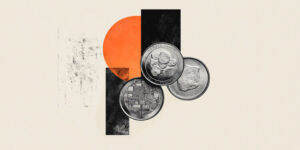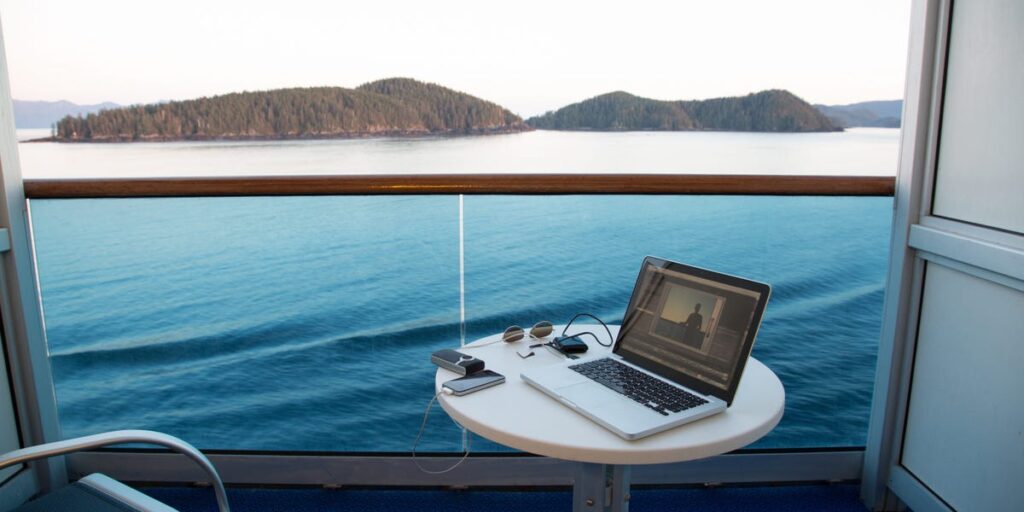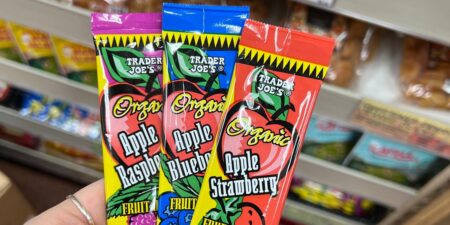You’re cutting back on big nights out, so you host dinner parties at home, springing for the fancy candlesticks and serving San Pellegrino.
You’re skipping the flight to Europe this summer. Wandering cobblestone streets comes with too much spontaneous spending; an all-inclusive cruise is the way to go.
Kelsey Laurier, a 32-year-old in Atlanta, understands this mindset. She caters her online content to people who want affordable luxury.
“People are tired of being nickel-and-dimed when it comes to certain situations,” Laurier said. “I think when you pay for something that’s already bundled, when you pay for something that you already know this is what it costs, I think it just feels better.”
A little bit of financial comfort might just hit the spot in today’s in-between economic moment. People are still spending, and inflation cooled in April, but both sentiment measures have fallen due to the US’s erratic trade strategy and last month’s stock market roller coaster. It’s not a bad time to readjust your budget for more predictable spending, even if you still want that luxury feeling.
The answer? Clear, upfront prices. Paul Hardart, a marketing professor at NYU Stern, pointed to an idea called perceived value — how much you perceive an item to be worth, which may or may not align with how much it’s actually worth. Bundles can have a big perceived value right now because they speak to that same comfort that Laurier mentioned.
“Even hotels where breakfast is included, you are paying for that, but there is a perceived value that feels good,” Hardart said.
All-inclusive entertainment, vacations, and dinners
If the early 2020s were all about YOLO spending, 2025 is an era of intentional budgeting.
It’s why concerts aren’t selling out anymore, but Netflix earnings are strong. Airlines are cutting flights while cruises are doing just fine. The difference? The winners have fixed prices and a lower likelihood of unexpected costs.
While spending has stayed strong, Americans have less of a savings cushion than in the immediate post-lockdown years. And there are signs their confidence is starting to crack. Consumer sentiment has been dwindling, falling 32% since January and hitting lows unseen since 2022.
“I definitely think we’re going to see a rise in people being more mindful of where they spend, and I think there’s going to be more of a focus on delayed gratification versus instant gratification,” Laurier said.
Cheaper store-brand groceries, as well as thrift and discount stores, are having a moment. At the same time, though, consumers — especially younger ones — have gotten a taste of luxury. Laurier has noticed that Gen Zers, who grew up with social media, are very interested in more name-brand items and designer clothing, whether they have the budget for it or not.
That’s where affordable luxury strategies come in. Dinners out can add up; they may or may not include drinks, appetizers, and a nightcap. The affordable luxury version of that is a dinner party, where you can set a budget in advance and still feel upscale with a few choice items — sans pricey appetizers, an upcharged bottle of wine, and tax and tip.
“People, even myself, are starting to splurge on higher quality foods as a way of it being a little luxury, because it is a very affordable luxury versus buying a handbag or something,” she said. “You can go to a farmers market and get all organic food and make a good meal with high-quality ingredients.”
That idea can be applied to the bigger-ticket luxuries, like travel and entertainment. The appeal of the cruise, as Henry Wismayer writes for BI, is that you know what you’re paying for — boats are generally all-inclusive, with some add-ons offered. That’s a stark financial contrast from bopping around Europe and stumbling into a pricey café, or having to pay for transit to get around.
Hardart, the marketing professor, said that companies, too, want predictability, and subscriptions are the way to go. Think Disney+ offering Hulu and sports, or Amazon Prime partnering with food delivery services.
Of course, an actual recession would hit spending in much more profound ways. But while that’s not guaranteed at the moment, Hardart said, “If you can’t really plan your future, therefore, you’re going to want to save more for the uncertainty that lies ahead.”
Do you have a story to share about bundling or affordable luxury? Contact this reporter at [email protected].
Read the full article here
















